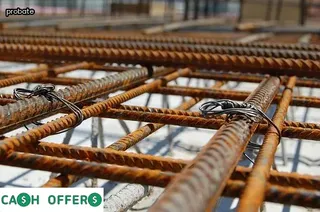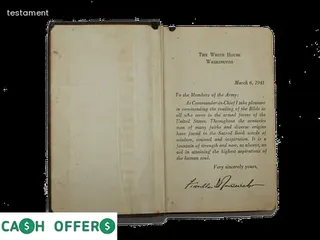When it comes to understanding probate listings and estates in Virginia, it is essential to understand the process of probate. Probate is defined as the court-supervised legal process of administering a deceased person’s estate.
This includes gathering the assets, paying valid debts and claims, and distributing the remaining assets to the rightful heirs or beneficiaries. In Virginia, an executor or administrator may be appointed by a court in order to manage the estate.
The executor or administrator is responsible for filing the documents necessary to open a probate case with the court, including an inventory of assets and a petition for letters testamentary or of administration. Once these documents have been filed with the court, creditors will be notified so that any outstanding debts can be addressed before any assets are distributed.
Selling a house in probate can become complicated as there are specific laws that govern this process in Virginia which must be followed by both parties involved. It is advisable to seek help from experienced professionals who can provide guidance on how best to handle such matters.

When dealing with probate in Virginia, the process of selling a house can be complicated. It is important for those involved to understand the specifics of the process and how it works.
The first step is to identify what type of estate is being sold, as this will determine which rules apply. Depending on whether it is an intestate or testate estate, there are different procedures that must be followed.
Next, the executor or personal representative must collect all relevant documents including wills and other legal documents that pertain to the sale. Additionally, any outstanding debts need to be taken into account before the property can be sold.
The executor must also open an estate account in order to manage all financial transactions related to the sale and ensure that taxes are paid appropriately. Lastly, they must get approval from the court before any assets can be distributed or sold to finalize the probate process in Virginia.
When dealing with probate and nonprobate cases in Virginia, it is important to understand the different types of assets that may be involved. Probate assets include things that are owned by an individual in their name alone, such as real estate, bank accounts, stocks and bonds, cars, jewelry, and furniture.
Nonprobate assets typically involve anything held jointly between the deceased person and another party. These can include life insurance policies, retirement accounts, trusts, and joint tenancy property.
It is essential to know which type of asset you are dealing with when selling a house in probate as these will be subject to different laws and regulations. Knowing what type of asset you need to manage can help make the process smoother for everyone involved.

In Virginia, small estates can be administered through special procedures, which are simpler than the typical probate process. This simplified approach can allow an estate to be closed in a much shorter timeframe and with fewer court appearances.
A qualified executor will be able to file the appropriate forms and paperwork with the court and provide necessary documentation to prove that the estate has been properly administered. Additionally, if there are any outstanding debts or taxes owed by the deceased, these must also be addressed before the estate can close.
Once everything is taken care of and all debts have been settled, the court will approve a transfer of ownership for any real estate involved in the probate listing. From there, the executor will then have authority over any remaining assets, meaning they can choose to liquidate them or keep them as investments.
Exploring regular probate proceedings in Virginia is an important step when selling a house in probate. Understanding the process, rights and regulations can help to make sure the sale goes smoothly and quickly for all involved.
Probate listings are a public record, meaning anyone can access them if they know where to look. Knowing who has a right to the estate is also important; usually this includes the deceased’s immediate family members or those listed in their will.
In order to initiate the sale of a property in probate, it must go through a court-supervised process which involves appointing an executor or administrator of the estate, proving that all debts have been paid, and getting approval from the court. In some cases, a judge may appoint someone to represent the interests of minors or other protected parties in regards to the estate.
Once all these steps have been completed, depending on what was outlined in the will, assets can be distributed among heirs and creditors or sold off at auction. It is important for those involved in probate proceedings to understand how Virginia laws apply so that everyone’s rights are protected and respected throughout this process.

In Virginia, it is necessary to probate a decedent's estate if they owned real property in their own name at the time of death. Probate involves filing an application with the local circuit court and having an executor appointed to manage the estate.
When a person passes away, their assets must be distributed according to their wishes as stated in their will. If there is no will, then the state of Virginia has laws that determine how the assets should be divided among heirs.
The executor is responsible for locating any creditors and paying them out of the estate before distributing any remaining assets to heirs. In addition to dealing with creditors, the executor must also make sure that all taxes are paid and all other liabilities settled before finalizing distribution of the estate.
Although probate can be a complicated process, understanding what is required can help you navigate it more easily when selling a house in probate in Virginia.
Avoiding probate in Virginia can be done by taking advantage of alternatives. For example, transferring ownership of a house to a living trust is one way to avoid the probate process.
Transferring assets to a joint tenancy with right of survivorship or creating a payable on death account are other options for avoiding probate. Additionally, creating beneficiary designations for assets like life insurance policies and retirement accounts will help pass them directly to beneficiaries instead of going through the probate process.
All these alternatives can help Virginians avoid the hassle and cost associated with probate while ensuring that their property is passed on according to their wishes.

In Virginia, the executor of an estate is typically entitled to compensation for time and effort put into settling the estate. The amount of compensation is determined by the court and may depend on a variety of factors including the size of the estate and complexity of its assets.
Executors are usually paid with funds from the decedent's estate before it is distributed among heirs. However, if there are not enough assets to cover the costs of administering an estate, such as probate fees or executor fees, these expenses will be taken out of any remaining funds left after other debts have been paid.
This means that executors should be aware that their compensation may be reduced or eliminated entirely in some cases. It is important for executors to understand all aspects of their duties and rights in order to ensure they are properly compensated for their work when handling estates in Virginia.
The calculation of executor fees for estates in Virginia can be a complex process. It is important to understand the applicable laws regarding the percentage of an estate that an executor is allowed to receive for their services.
In general, executors are entitled to a 5% commission on all assets distributed from an estate. However, if the total value of the estate is more than $1 million, then an executor may receive up to 10% depending on the circumstances.
Additionally, it may be necessary to consult with an attorney or financial adviser to determine any additional fees that may be due based on state and local regulations. Executors must also keep track of any miscellaneous expenses they incur while managing the estate such as travel costs, filing fees, appraisals and other administrative tasks.
These costs should be taken into account when calculating executor fees so that they do not exceed legal limits. Understanding these rules and regulations can help ensure that the process goes smoothly and all parties involved are fairly compensated for their time and effort.

The probate process in Virginia can be lengthy and complex, so it is important for anyone looking to buy or sell a home in probate to understand the legal requirements that dictate the timeframe. Generally speaking, a personal representative of the estate must first be appointed by the court and then take inventory of all assets before any property can be sold.
The personal representative must also receive court approval before selling any assets from the estate. Once approved, advertising for potential buyers must take place before an offer is accepted and closing documents prepared.
It is common for this entire process to take anywhere from six to nine months, with delays possible depending on various factors unique to each situation. As such, it is important to plan ahead and be aware of potential delays if you are looking to buy or sell a house in probate in Virginia.
In Virginia, probate is generally required when a deceased person had assets in his or her name at death. However, there are some exceptions to this rule and it is important to understand them for those who are selling a house in probate.
Small estates may not require probate if all of the assets are held jointly with right of survivorship and do not exceed certain value thresholds. In addition, obtaining letters of administration may be unnecessary if the decedent has a will that has been properly executed in compliance with Virginia law.
Certain other nonprobate transfers such as beneficiary designations on life insurance policies, retirement accounts and payable-on-death bank accounts can also avoid the necessity of filing for probate. It is important to explore all of these possibilities before going through the formal process of opening an estate and making sure that all creditors have been paid.

When it comes to selling a house in probate in Virginia, understanding the process of probate is essential. Investigating will requirements for probates in Virginia is an important first step that must be taken before the sale of any property can occur.
Knowing the necessary documents needed to begin probate proceedings, such as a valid will and other estate documentation, can help speed up the process. In addition, understanding how to proceed with real estate transactions related to wills and estates is crucial when selling a house in probate.
It is important for potential buyers and sellers to understand all relevant laws regarding inheritance taxes, liens, mortgages, and other legal matters associated with probate listings and estates. Additionally, having an experienced attorney on hand who specializes in estate law can be beneficial throughout this often confusing process.
By taking the time to thoroughly research the requirements for wills and estates in Virginia prior to initiating any real estate proceedings related to probates, potential buyers and sellers can ensure that their transaction goes smoothly and efficiently.
Settling an estate on behalf of a deceased person in Virginia can be a daunting task. Understanding the probate process and how to sell a house in probate is essential for those dealing with the estate.
Probate listings are documents that list the assets and liabilities of an estate. These will include any real property such as houses, land, and other real estate that must be managed or sold during the course of settling an estate.
The court-appointed executor or administrator is responsible for handling all aspects of selling a house in probate, including locating buyers and managing the sale process. In addition to finding qualified buyers, the executor must also secure property appraisals to establish fair market value for any real estate being sold as part of settling an estate.
In Virginia, there are specific requirements that apply to selling a house in probate which may include filing certain paperwork with the court and obtaining approval from interested parties before closing on a sale. Additionally, understanding state laws regarding inheritance tax and other financial obligations related to selling a house in probate is essential when settling an estate on behalf of a deceased person in Virginia.
In Virginia, probate is the legal process of distributing a deceased person's estate after their passing. It involves authenticating a will, appointing an executor to manage the estate's assets, paying off any outstanding debts, and distributing the remaining property according to the will or state intestacy laws.
Probate can be an expensive and time-consuming process, so understanding what it means in Virginia is key if you are looking to sell a house in probate. In Virginia, the court oversees the probate process to ensure that the decedent's wishes are followed and all creditors are paid.
The executor appointed by the court must follow specific guidelines set out by state law when it comes to handling the estate's finances. All assets must be inventoried and appraised, and any taxes or other debts must be paid before any of the remaining assets can be distributed.
Once this is done, then probate proceedings can continue as normal with distribution of assets to heirs or beneficiaries according to law or as directed in a valid will.

In Virginia, the probate process can take anywhere from 6 months to several years depending on the complexity of the estate and any disputes that arise.
The time frame for completing the probate process varies but is typically between six months to a year in most cases.
In certain situations, such as if there is a dispute over assets or if the deceased person had many debts to be paid off, it may take longer than one year for an estate to stay in probate.
Once all outstanding debts have been paid off and all assets have been distributed according to the will or trust, then the estate is officially closed and no longer in probate.
In Virginia, when a person dies, the estate must go through a legal process known as probate. Probate is required to transfer ownership of a decedent’s assets to heirs or beneficiaries.
This process is governed by Virginia law and can be complex depending on the value of the estate and whether or not there are contested claims. To understand the probate process, it is important to know what type of assets may be subject to probate proceedings and what documents are needed for a successful sale of an estate property.
In general, any real property owned at death must go through probate in order to legally transfer ownership. Before selling a house in probate, it is important to consult with an attorney who specializes in Virginia probate law to ensure that all necessary steps are taken and that all applicable laws are followed.
In Virginia, the best way to avoid probate on a house is to create a living trust. A living trust is an estate planning tool that allows you to transfer ownership of your assets without going through probate court.
With a living trust, you can name beneficiaries who will inherit your property upon your death, instead of having it go through probate. Additionally, if you create a joint tenancy with right of survivorship for the property, both owners can be listed as tenants in common and when one dies their share will pass directly to the surviving tenant without involving the probate process.
Additionally, setting up payable-on-death accounts and transferring real estate titles into joint ownership are other ways to avoid probate on your house in Virginia. To ensure that all legal requirements are met and that your wishes are properly carried out, it's important to consult with an experienced attorney who specializes in estate planning and probate law in Virginia.